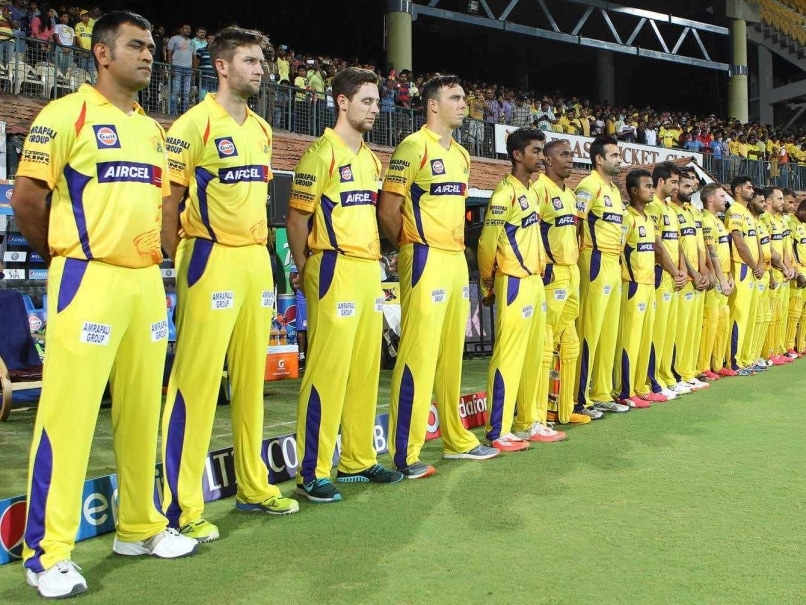IPL 2013 Scandal: Chennai Super Kings, Rajasthan Royals Face Heavy Sanctions
Officials from the Chennai Super Kings and the Rajasthan Royals have already been found guilty of betting on IPL matches.
- Written by Soumitra Bose
- Updated: July 14, 2015 11:27 am IST

Tuesday could be a landmark day in the history of the Indian Premier League. A Supreme Court-appointed panel, headed by former Chief Justice of India Rajendra Mal Lodha, could deliver a knockout blow to champion sides -- Chennai Super Kings and Rajasthan Royals -- whose team officials have been indicted of betting and sharing team information during the 2013 edition of the tournament. The panel can at best suspend or recommend a ban. It could also fine the teams.
All eyes will be on Gurunath Meiyappan, the son-in-law of ex-BCCI chief and CSK owner N. Srinivasan, and Raj Kundra, the husband of Bollywood actress Shilpa Shetty. Kundra owned stakes in Rajasthan Royals.
The Lodha committee was appointed by a Supreme Court Bench on January 22. Its verdict will be final and binding on the BCCI, the promoters and owners of the cash-rich and popular IPL. The final call to implement the decisions of the Lodha panel will rest on the IPL Governing Council.
However, the aggrieved party can seek legal redress.
The new management at BCCI is all for clean cricket. On Monday, the Board suspended a Mumbai cricketer - Hiten Shah - who has been charged for making a corrupt approach to fellow Mumbai player Pravin Tambe, who plays for Rajasthan Royals.
Following are the top 10 developments:
1. The IPL scandal dates back to May 16, 2013 when Delhi Police arrests Rajasthan Royals players S. Sreesanth, Ankit Chavan and Ajit Chandila in Mumbai for spot-fixing matches in return for money. It leads to the arrest of Vindoo Dara Singh, who reveals the involvement of Gurunath Meiyappan. Mumbai Police arrests Meiyappan on charges of betting, cheating and conspiracy. (Complete IPL spot-fixing timeline)
2. On May 26, a hassled BCCI, led by N. Srinivasan, appoints a three-member commission consisting of Justice T Jayaram Chouta, Justice R Balasubramanian and then BCCI secretary Sanjay Jagdale to look into the charges of betting against Meiyappan. Jagdale quits. BCCI treasurer Ajay Shirke also steps down. The judges, without probing much, give Meiyappan and Raj Kundra a clean chit, saying there was no evidence of wrong doing. Srinivasan calls CSK team owner Meiyappan a "mere cricket enthusiast."
3. The BCCI panel's decision to let off Meiyappan and Kundra is challenged by the Cricket Association of Bihar secretary Aditya Verma in Bombay High Court. Srinivasan is charged with shielding his son-in-law and other corrupt associates. On July 28, Bombay High Court judges find the BCCI probe panel illegal and say the report is null and void.
4. On August 5, the BCCI files a Special Leave Petition in Supreme Court challenging the Bombay High Court order. On October 7, the apex court appoints a three-member committee, headed by former High Court judge Mukul Mudgal. The panel was mandated to investigate but not impose any punishment. The BCCI is asked to cooperate in the probe.
5. After meeting 100 people, including top IPL and Board officials and senior players, the Mudgal panel submits its report to the Supreme Court on February 10, 2014. The panel also submits a sealed envelope that contains 13 names against whom there are allegations that merit further in-depth investigation. The Mudgal panel says Meiyappan was the face of CSK and was involved in betting and sharing team information. It also says Kundra participated in betting.
6. On March 25, the Supreme Court asks Srinivasan to step aside from BCCI activities to ensure a fair probe. The judges appoint Sunil Gavaskar (IPL affairs) and Shivlal Yadav (non IPL events) as interim Board presidents. The court also says that no people associated with India Cements, the owners of CSK, should be involved with BCCI.
7. The investigation gathers steam and on May 16, Supreme Court empowers Mudgal panel to probe the 13 names in the sealed envelope. IPS officer BB Mishra is added to the team to help in investigations. The court rejects Srinivasan's plea to run the Board (non IPL matters) but doesn't stop him from representing BCCI at ICC.
8. After submitting an interim report on August 29, Mudgal panel gets a two-month extension for its final report. On November 3, the final report is submitted but the BCCI appeals to the judges not to make it public because the reputation of several people was at stake. This included players.
9. After a series of hearings, the Supreme Court on December 15, 2014 decides to examine a controversial amendment in the BCCI rules that enable office bearers to own teams and have commercial interest in the IPL and Champions League T20. The issue of conflict of interest snubs Srinivasan, whose company India Cements own CSK. Srinivasan is its managing director.
10. In a landmark judgement on January 22, 2015 and in a bid to cleanse Indian cricket, the Supreme Court bench tells Srinivasan not to contest BCCI elections - the Tamil Nadu strongman was seeking a third term as Board president. The Bench also sets up the Lodha committee to determine amount of punishment for Meiyappan, Kundra and their respective teams.
